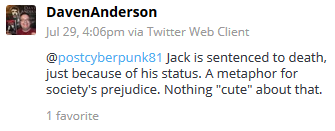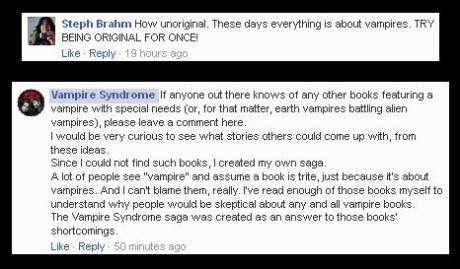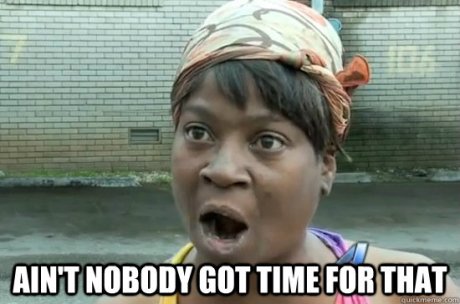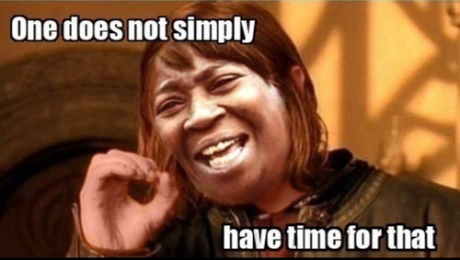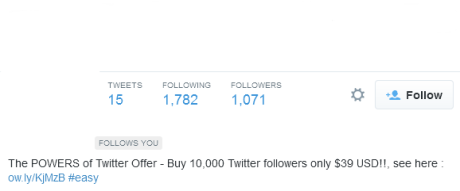The Decade of the 2020’s might be seen in the future as the beginning of the end for “human-written-from-start-to-finish” fiction novels. With all the causes thereof rooted in the events of this decade, the 2010’s.
I myself had a front row seat to witness the declines of unique “outside the box” novels, diversity of shelf content in local bookstores, and the fortunes of small presses; all in the face of relentless homogenization to hew to the Big Five New York Publishers’ risk-averse formulae. A brief ray of hope that expanding numbers of video streaming channels would open up the doors for more “outside the box” television projects has now also been dashed in the face of relentless reboots and remakes to reduce risk. 😐
Humans’ greatest asset in a world where Artificial Intelligence improves almost daily is the ability to think outside of the (A.I.) box.
The 10 skills you need to thrive in the Fourth Industrial Revolution
Creativity will become one of the top three skills workers will need. With the avalanche of new products, new technologies and new ways of working, workers are going to have to become more creative in order to benefit from these changes.

These are the exact skills you would think would be important to create a novel worthy of major publishers’ and Hollywood’s attention.
How did my work fare in these respects? (Review quotes for a previous edition published in 2014, now out of print.)
“Jack Wendell is a character unique to modern fiction.”
“Welcome, “Jack Wendell’s Vampire Syndrome.” I promise, you have never read a vampire book like this one.”
I wrote a novel, for which its creation was the very exemplification of complex problem solving, critical thinking and creativity.
A Vampire with Down Syndrome, not coming off as a caricature?
“…not once did I feel the author or his story pandered. This is a compelling work.”
“…in lit(erary) circles fully drawn characters with Down Syndrome have been rare.”
“Surely, this genre is well-worn; what can possibly be done to rejuvenate it? … Somehow, Daven Anderson makes it all work.”
“The conflicts inherent therein make for the best of fiction. This is one of my very favorite novels that I’ve read all year.”
Problem is, due to risk aversion and narrowing formulae, “This is a compelling, unique work” and a dollar won’t buy me a Starbucks in New York or Hollywood… 😉
But that dollar plus tax will buy me a McDonald’s coffee in Denver, so back to the working life I went, where my complex problem solving, critical thinking and creativity skills are ironically more valued than they are in the publishing or television worlds.
And as for the plans I had to write as a hobby, after retiring from full-time work: 538 + 296 = Zero
Not making money off of books is one thing. But no reviews is quite another. Without even a minimal dialogue with others in any way, shape or form, there is no reason to publish a work. 😐
Naturally, that drop-kicks the “muse” to the curb, meaning that “muse” might well become one of the most endangered occupations of the 2020’s… 😈
So, in a world where “complex problem solving, critical thinking and creativity skills” are increasingly important in everyday life, yet these same qualities can become liabilities to the New York Publishing (and Hollywood financing) sectors, where will that lead New York Publishing to?
To A.I., of course.
Since, after all, The First Novel Written by A.I. Is Here…
Not only is A.I. writing here, “predictive text” is already starting to improve in line with human interaction.
In the next decade or two, New York Publishing could well evolve into “Best-Selling Authors” entering outlines and synopses into A.I. predictive text programs, then proof-reading and editing the resultant text into book form.
Think that’s impossible? James Patterson and other best-selling names are already working this way, with hired human authors acting as the “predictive text generators”.

In another ten to twenty years, A.I. predictive text should be refined enough to do this sort of “grunt work.” And fill out a whole bunch more Marvel story arcs, to give just one Hollywood example.
Then the Big Five (or Four, or Three; by then?) Dream will come true. There will be even more tight hewing to formulae, as previous work defining that criteria is incorporated into the A.I.’s databases, and the apps can “predict” what the Big Five will want from the text, formula-wise. As in this Harry Potter fan fiction example, “signature” stylistic examples from the human authors’ previous work will also be rolled into the databases.
And the basic modus operandi is already in place for all this.
Publishers Weekly: Is Publishing Too Top-Heavy?
(A literary agent at a major firm) Citing the fact that major authors of today publish at an increased “velocity and frequency,”, he feels that this rarified group now gets an outsize amount of the limited spoils: bigger advances, more of retailers’ limited space, and more of publishers’ time and attention. “The more big authors a house publishes, the more they take away from all of the other authors,” he added.
“Rise Of The Machines“, indeed.
Kristen Lamb’s “cyborg author” on the cover is so prophetic, even she doesn’t know how on point this will be. Problem is, the sequel for the 2020’s would have to be subtitled “Digital Authors in a Human World”… 😈
And, as with “James Patterson” books today, very few of the readers will suspect 95%+ of the actual text in their shiny New York Times Bestseller copy was not generated by the name on the dust jacket. 😈
Maybe there’s hope for my retirement hobby yet. If all “writing books” will take in the next decade of two is an outline or a synopsis, then we can all create 100,000 word novels in just a couple of days, and lack of money or reviews won’t matter so much when it only takes a few days to generate the work. 😎😈
No, wait, that’s too easy. 😝 There has to be a catch. 😈 And here it is:
If you think Amazon Kindle Direct Publishing is crowded now, with over a million books a year being added to K.D.P. even at the present time, just wait a decade or two for when no one even has to do the “grunt work” of typing the majority text. Everyone’s “idea” for a novel will suddenly become a novel. Even now, there are at least a hundred people with “ideas for a novel” (for every person who has finished a novel) who have not finished their novels due to the grunt work required to create the text. What happens when all those “ideas” can become novels in a day or two, without all the “heavy lifting” of typing out text? Predictive text A.I. programming fed by human ideas will bring its own version of the “infinite monkey theorem” to life.
Think “discoverability” is a big problem for new works now?
Just wait until there are over 500 million e-books floating around in cyberspace. Maybe even over a billion, who knows? 😈
Winning the Powerball jackpot or being struck by lightning will seem like quite reasonable odds by comparison.
With all this on the horizon, what authors will really need are A.I. generated reviews. Then, A.I. can review its own predictive text output, and we humans need not even be in the loop… 😈
Instead of being an asset, thinking outside of the box was a liability for me in the publishing and Hollywood development financing Worlds in the 2010’s decade. But this also enables me to see how things can get worse in these worlds, in ways that few are even imagining right now.
Yes, the one activity most people associate as being the most creative and uniquely human of pursuits, fiction writing, will be taken over by the bots, the programs and the apps.
It is a given that the first generations of A.I. text completion programs/apps will require more human input than later, more advanced versions. “A.I. Fiction App 1.0”, for example, might require humans to write a synopsis, chapter outlines and opening sentences. By generation 4.0 or 5.0, the App may be able to construct an entire novel from a “back cover blurb” style outline consisting of several paragraphs.
One constant will remain true as the programs/apps evolve:
The more human input received, the more “human” the end results will seem. More ambitious writers will still human-create chapter outlines/synopses, add and delete sentences, edit the A.I.-created sentences, etc.
And the A.I. will learn from all this! 😈
Obi-Wan Kenobi (Star Wars Episode II):
“Well if droids could think, there’d be none of us here, would there?”

The “droids” in the Star Wars universe or ours might not be able to “think” (creatively), but as we all know, creative thinking is not in itself a prerequisite to writing. 😈😄😈😝
And even E.L. James-style tripe embodies a uniqueness future generations will likely never see; pure unfettered every-single-word human output unfiltered by any concerns of “taste” or decorum. The upcoming A.I. will write “better” than her in technical terms, but it will never match the best (or worst, in her case) of human prose.
The next Shakespeares, the next Hemingways and even the next E.L. James-es will all be at their day jobs; never to entrance, entertain us or even repulse us with their words, because it won’t be “their words”…
Welcome to the future.









